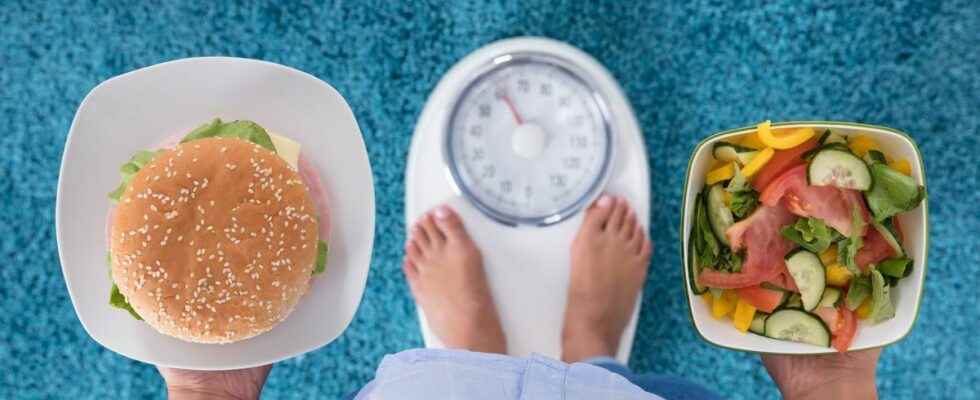Published on
Updated
Reading 3 mins.
According to a Danish study, enjoying a diet low in sugar but high in fat would be the key to greater weight loss and better control of blood sugar in type 2 diabetes. With a catch, however: this distribution seems difficult to maintain in the long term.
Swapping your usual diet for a plate low in carbohydrates but high in fat could solve some of your problems: make you lose more weight, and better control your blood sugar, if you have type 2 diabetes. C is in any case the announcement of a team of researchers from the University of Southern Denmark, in a study published in Annals of Internal Medicinethis Tuesday, December 13.
Low sugar diet VS low fat diet
The study randomly assigned low-carb, high-fat (LCHF) and high-carb, low-fat (HCLF) diets to 165 people with type 2 diabetes for 6 months, according to the study. following breakdown:
- The LCHF diet allowed 20% of daily calories from carbohydrates, 50% to 60% from fat sources, and 25% to 30% from protein;
- The HCLF diet allows about 50% to 60% of daily calories from carbs and splits the rest between fat and protein;
- No particular amount was assigned to the participants, except the advice not to eat more than they spent.
The low-carb, high-fat diet wins the game…
After 6 months of study, researchers found that participants who followed an LCHF diet, which is low in carbohydrates and high in fat, had greater weight loss and better blood sugar control. On average, they reduced hemoglobin A1c by 0.59% more than the other group and also lost 3.8 kg more weight than people in the HCLF group.
These same participants also experienced greater improvements in their “good” cholesterol and triglyceride levels, as well as greater reductions in waist circumference and body fat percentage.
… but is not easy to follow in the long term
However, several disadvantages have been noted:
- People on the low-sugar, high-fat diet also had increases in “bad” cholesterol levels compared to people on the HCLF diet;
- Dietary habits and benefits were not maintained beyond 3 months;
- No difference was found between the two groups in the amount of liver fat or inflammation.
Cutting out carbs doesn’t have to be the only option
If the cited study has the advantage of proposing a diet that works on weight and blood sugar, but it seems obvious that such a dietary change cannot be the long-term solution. Thus, support and physical exercise will have a better chance of prolonging the effects of this beneficial diet.
Julie Cunningham dietician nutritionist specializing in the control of type 2 diabetes commented on the study in the lines ofHealthline :
“As the authors pointed out, people in the study were not able to sustain their dietary changes or improved health 3 months after the study ended. I don’t want that my patients temporarily change their diet and then experience worsening blood sugar levels, weight gain, and accompanying depression when they stop following a low-carb, high-fat diet.”
Instead, the dietician advises rather to determine exactly what one really eats on a daily basis, of his needs and to speak to a professional, a dietician to be accompanied and obtain lasting results. Replacing simple carbs with complex carbs can also help you last longer. Finally, in type 2 diabetes, constant physical activity also helps to optimize metabolism and reduce inflammation.
